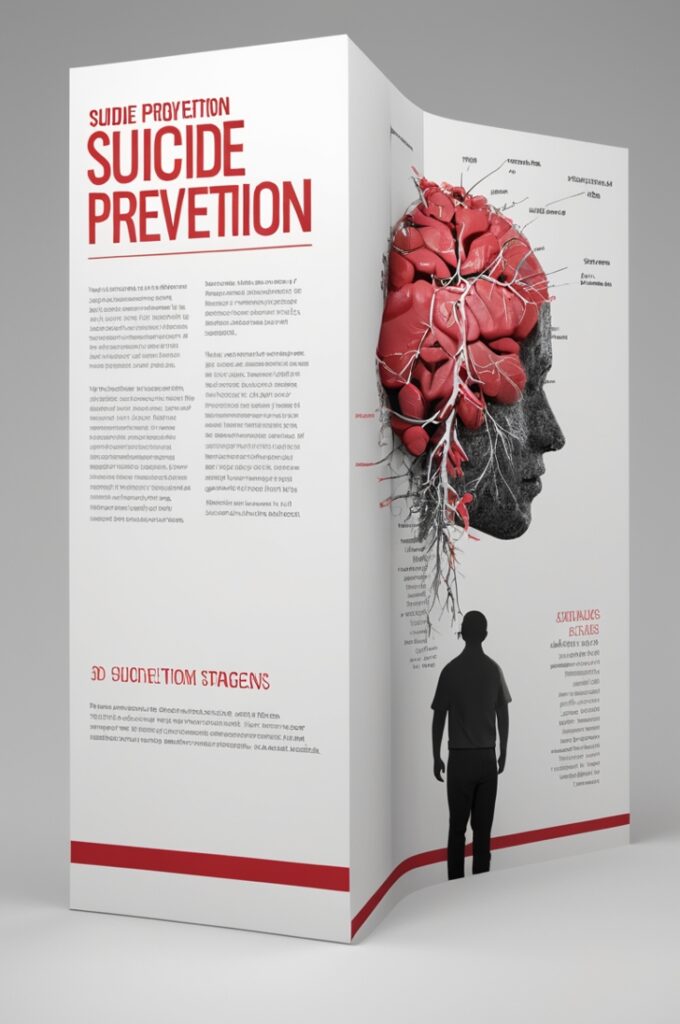16. The Mental Health Impact of Post-Pandemic Stress
As we continue to navigate the aftermath of the global COVID-19 pandemic, post-pandemic stress remains a crucial topic in mental health research. Many individuals are dealing with prolonged stressors, such as grief over lost loved ones, long-term illness due to Long COVID, and anxiety about the future. These experiences have led to what some mental health professionals refer to as “pandemic fatigue” or “post-pandemic stress disorder.”
In 2024, researchers will focus on understanding the long-term psychological effects of the pandemic, particularly in vulnerable groups such as frontline workers, individuals with pre-existing mental health conditions, and those living in isolation during lockdowns. There will also be an emphasis on developing strategies to help people cope with the lingering impacts of the pandemic on their mental health.
Key Areas of Focus:
- Identifying the long-term psychological effects of the COVID-19 pandemic.
- Coping mechanisms for individuals experiencing post-pandemic stress.
- The role of community support in recovering from pandemic-related mental health challenges.

17. Technology Addiction and Its Effects on Mental Health
As the world becomes increasingly digital, concerns about technology addiction—including addiction to smartphones, video games, and other digital devices—continue to rise. Excessive use of technology has been linked to mental health issues such as anxiety, depression, and attention disorders. In 2024, mental health research is likely to delve deeper into understanding the neurological and psychological impacts of technology addiction and how they affect various age groups.
Researchers will likely focus on developing diagnostic tools to identify technology addiction and create interventions to reduce its prevalence, especially among children and adolescents. The growing field of “digital detox” strategies, which encourage reducing or eliminating screen time for better mental health, will also be studied.
Key Areas of Focus:
- The neurological effects of excessive technology use on mental health.
- Interventions and therapies to treat technology addiction.
- The impact of technology on attention span, memory, and emotional regulation.

18. Suicide Prevention Strategies
Despite advancements in mental health care, suicide rates remain a significant public health issue globally. In 2024, mental health research is expected to prioritize finding more effective suicide prevention strategies, particularly those tailored to at-risk groups such as adolescents, veterans, and individuals struggling with substance abuse.
There will likely be a focus on improving early intervention efforts, including developing better screening tools to identify individuals at risk of suicide. Additionally, researchers will explore how community-based approaches and public awareness campaigns can be used to reduce the stigma surrounding suicide and encourage individuals to seek help.
Key Areas of Focus:
- New screening tools for identifying individuals at risk of suicide.
- Culturally-sensitive suicide prevention strategies.
- The effectiveness of mental health hotlines and crisis intervention programs.

19. The Role of Art and Creativity in Mental Health Therapy
Art and creative expression are increasingly being recognized as valuable tools for mental health treatment. In 2024, there will likely be a growing body of research into the benefits of art therapy, music therapy, and other creative outlets as complementary treatments for conditions such as depression, PTSD, and anxiety. These approaches provide individuals with non-verbal ways to process emotions, making them particularly useful for those who struggle to articulate their feelings through traditional therapy methods.
Researchers will also study the impact of creative activities on brain function, emotional regulation, and the overall well-being of individuals engaged in therapeutic art practices.
Key Areas of Focus:
- The therapeutic benefits of art and music in mental health treatment.
- How creativity enhances emotional expression and mental well-being.
- The role of creative therapies in treating trauma and stress-related disorders.

20. The Use of Virtual Reality (VR) in Mental Health Treatment
Virtual Reality (VR) has emerged as a groundbreaking tool in mental health care, offering immersive experiences that can be used to treat conditions such as phobias, PTSD, and anxiety disorders. By creating controlled environments in which individuals can confront and overcome their fears, VR-based therapies provide a safe and effective means of exposure therapy.
In 2024, researchers will likely explore the expanding applications of VR in mental health, focusing on how it can be adapted for various conditions. The goal is to develop cost-effective, accessible VR therapies that can be used in clinical settings as well as at home. Studies will also look at the long-term effectiveness of VR in alleviating symptoms and improving mental health outcomes.
Key Areas of Focus:
- VR-based exposure therapy for phobias and anxiety disorders.
- The use of VR in treating PTSD and other trauma-related conditions.
- The accessibility and affordability of VR technologies for mental health care.

21. Substance Use Disorders and Dual Diagnosis
Many individuals with mental health disorders also struggle with substance use disorders—a phenomenon known as dual diagnosis. In 2024, research will focus on understanding the complex relationship between substance abuse and mental health conditions like depression, anxiety, and bipolar disorder. The aim is to develop integrated treatment approaches that address both mental health and addiction concurrently.
Research will also likely examine the social determinants of substance abuse, including poverty, trauma, and lack of access to mental health care, to develop more comprehensive prevention and treatment strategies for those at risk of dual diagnosis.
Key Areas of Focus:
- Integrated treatment models for individuals with dual diagnosis.
- The social factors contributing to substance abuse and mental health disorders.
- The effectiveness of community-based interventions in reducing substance use.

Conclusion
As we look ahead to 2024, the landscape of mental health research continues to evolve, with a focus on addressing some of the most pressing challenges facing individuals and communities around the world. From the impact of social media on mental well-being to the promise of new technologies like VR and AI in treatment, mental health research is exploring innovative ways to improve the lives of those affected by psychological conditions.
The diverse range of topics—spanning trauma-informed care, the mental health impacts of aging, and the intersection of physical and mental health—reflects a growing understanding that mental health is a complex, multifaceted issue. With continued advancements in research, there is hope for more effective treatments, prevention strategies, and support systems that can help individuals achieve better mental health in the years to come.

SynaBoost
Unlock the Secret to Supporting Brain Health: Rejuvenate Your Memory, Focus, and Sharpness.



